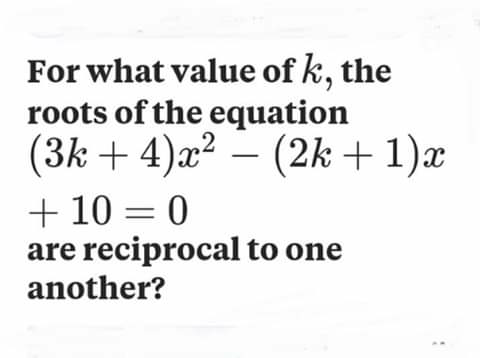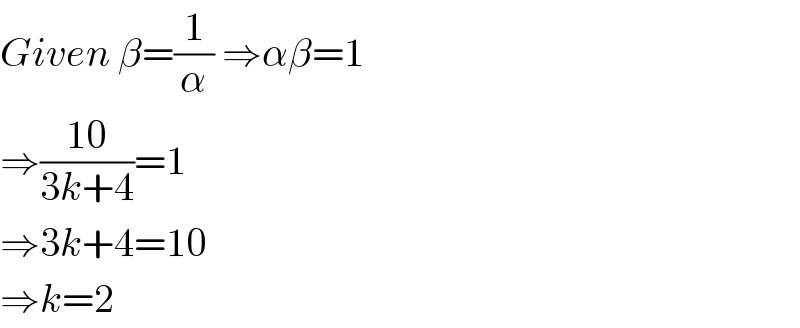Question Number 54869 by peter frank last updated on 13/Feb/19

Answered by $@ty@m last updated on 13/Feb/19

$${Given}\:\beta=\frac{\mathrm{1}}{\alpha}\:\Rightarrow\alpha\beta=\mathrm{1} \\ $$$$\Rightarrow\frac{\mathrm{10}}{\mathrm{3}{k}+\mathrm{4}}=\mathrm{1} \\ $$$$\Rightarrow\mathrm{3}{k}+\mathrm{4}=\mathrm{10} \\ $$$$\Rightarrow{k}=\mathrm{2} \\ $$
